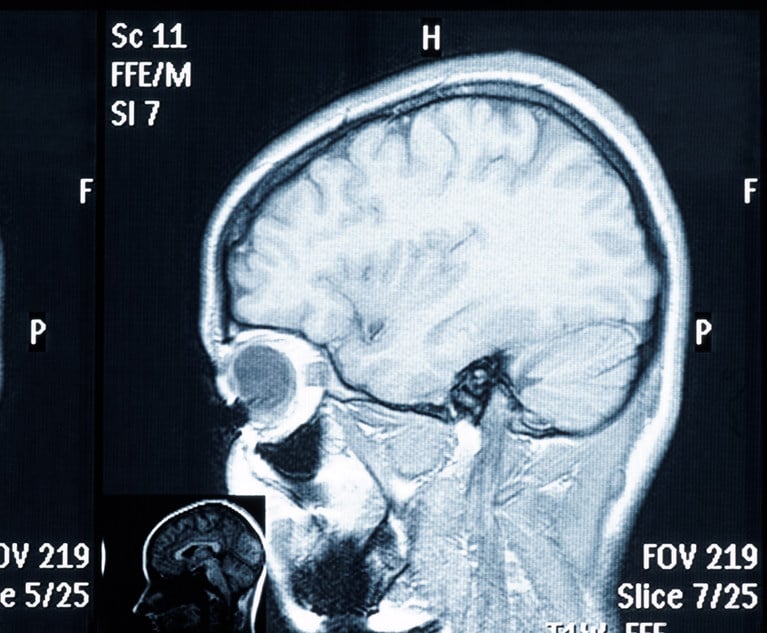 Photo: KseniaJoyg/Adobe Stock
Photo: KseniaJoyg/Adobe Stock Personal Liability Following a Deed in Lieu of Foreclosure in New Jersey
"This makes a deed in lieu of foreclosure an attractive loss mitigation option for a defaulting homeowner in New Jersey," writes Myron C. Weinstein
September 18, 2024 at 12:00 PM
8 minute read
A mortgage debtor assumes a double risk: the risk of losing the mortgaged property for a default under the obligation secured by the mortgage, plus the risk of being saddled with personal liability under the obligation and a deficiency judgment for 20 years. But what about the mortgage debtor's personal liability after giving a deed in lieu of foreclosure? The answer is simple: If the deficiency action statutes apply, N.J.S.A. 2A:50-2 et seq.—aimed at protecting residential mortgage debtors against excessive deficiency judgments—a mortgage debtor runs no risk of personal liability for the mortgage debt. This is because the deficiency action statutes, where applicable, require a judicial mortgage foreclosure and sale first before any deficiency action can be instituted for any debt secured by a mortgage (except where the mortgage has been extinguished by the foreclosure of a prior mortgage and sale). Since a deed in lieu of foreclosure is obviously not a prior mortgage foreclosure and sale, deficiency actions are prohibited following such deeds. This makes a deed in lieu of foreclosure an attractive loss mitigation option for a defaulting homeowner in New Jersey. (See 4:64-1B(c)(2) for a qualified, residential homeowners right to participate in the Residential Foreclosure Mediation Program (includes a deed in lieu of foreclosure) "at any time prior to the sale of the property.")
If the deficiency action statutes do not apply, the liability of persons answerable on the debt, assumption agreements and guaranties, if any, following a deed in lieu of foreclosure—where the deed is not taken in full satisfaction of the debt—is limited by the equitable primary fund doctrine to the excess of the debt over the value of the land (see below). Absent an agreement permitting it, following such a deed persons answerable on the debt have a defense to an action on the debt (e.g., a suit on the secured note) or, if reduced to a judgment, enforcement of that judgment up to the land's value.
NOT FOR REPRINT
© 2025 ALM Global, LLC, All Rights Reserved. Request academic re-use from www.copyright.com. All other uses, submit a request to [email protected]. For more information visit Asset & Logo Licensing.
You Might Like
View All


The Real Estate Consumer Protection Enhancement Act Brings Industry Change
9 minute readTrending Stories
- 1We the People?
- 2New York-Based Skadden Team Joins White & Case Group in Mexico City for Citigroup Demerger
- 3No Two Wildfires Alike: Lawyers Take Different Legal Strategies in California
- 4Poop-Themed Dog Toy OK as Parody, but Still Tarnished Jack Daniel’s Brand, Court Says
- 5Meet the New President of NY's Association of Trial Court Jurists
Who Got The Work
J. Brugh Lower of Gibbons has entered an appearance for industrial equipment supplier Devco Corporation in a pending trademark infringement lawsuit. The suit, accusing the defendant of selling knock-off Graco products, was filed Dec. 18 in New Jersey District Court by Rivkin Radler on behalf of Graco Inc. and Graco Minnesota. The case, assigned to U.S. District Judge Zahid N. Quraishi, is 3:24-cv-11294, Graco Inc. et al v. Devco Corporation.
Who Got The Work
Rebecca Maller-Stein and Kent A. Yalowitz of Arnold & Porter Kaye Scholer have entered their appearances for Hanaco Venture Capital and its executives, Lior Prosor and David Frankel, in a pending securities lawsuit. The action, filed on Dec. 24 in New York Southern District Court by Zell, Aron & Co. on behalf of Goldeneye Advisors, accuses the defendants of negligently and fraudulently managing the plaintiff's $1 million investment. The case, assigned to U.S. District Judge Vernon S. Broderick, is 1:24-cv-09918, Goldeneye Advisors, LLC v. Hanaco Venture Capital, Ltd. et al.
Who Got The Work
Attorneys from A&O Shearman has stepped in as defense counsel for Toronto-Dominion Bank and other defendants in a pending securities class action. The suit, filed Dec. 11 in New York Southern District Court by Bleichmar Fonti & Auld, accuses the defendants of concealing the bank's 'pervasive' deficiencies in regards to its compliance with the Bank Secrecy Act and the quality of its anti-money laundering controls. The case, assigned to U.S. District Judge Arun Subramanian, is 1:24-cv-09445, Gonzalez v. The Toronto-Dominion Bank et al.
Who Got The Work
Crown Castle International, a Pennsylvania company providing shared communications infrastructure, has turned to Luke D. Wolf of Gordon Rees Scully Mansukhani to fend off a pending breach-of-contract lawsuit. The court action, filed Nov. 25 in Michigan Eastern District Court by Hooper Hathaway PC on behalf of The Town Residences LLC, accuses Crown Castle of failing to transfer approximately $30,000 in utility payments from T-Mobile in breach of a roof-top lease and assignment agreement. The case, assigned to U.S. District Judge Susan K. Declercq, is 2:24-cv-13131, The Town Residences LLC v. T-Mobile US, Inc. et al.
Who Got The Work
Wilfred P. Coronato and Daniel M. Schwartz of McCarter & English have stepped in as defense counsel to Electrolux Home Products Inc. in a pending product liability lawsuit. The court action, filed Nov. 26 in New York Eastern District Court by Poulos Lopiccolo PC and Nagel Rice LLP on behalf of David Stern, alleges that the defendant's refrigerators’ drawers and shelving repeatedly break and fall apart within months after purchase. The case, assigned to U.S. District Judge Joan M. Azrack, is 2:24-cv-08204, Stern v. Electrolux Home Products, Inc.
Featured Firms
Law Offices of Gary Martin Hays & Associates, P.C.
(470) 294-1674
Law Offices of Mark E. Salomone
(857) 444-6468
Smith & Hassler
(713) 739-1250







